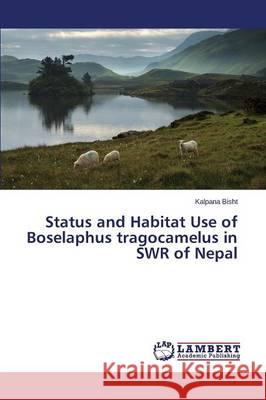Status and Habitat Use of Boselaphus tragocamelus in SWR of Nepal » książka
Status and Habitat Use of Boselaphus tragocamelus in SWR of Nepal
ISBN-13: 9783659750953 / Angielski / Miękka / 2015 / 60 str.
Given study on the population status and habitat use of Nilgai (Boselaphus tragocamelus) was carried in Suklaphanta Wildlife Reserve of Nepal during the summer (May-July) 2011. Study aimed for the status distribution and habitat use of the animal. Direct count and transect plot method was used for population status and Quadrate method was used for the vegetation analysis to determine the habitat use of the animal. In vegetation analysis all stage of tree including tree, pole size, sapling and seedling were also analyzed as well as the shrubs and herbs were analyzed. Nilgai were found using three main different habitats available in the study area, Sal forest, Riverine forest and Mixed forest. Of these, Sal forest with grass patches was highly preferred mainly due to the availability of preferred browse and grass species and also the semi-open land helps animals to avoid the risk of predation. Study also tried to show the location of the animal, pellet of animal, water whole location in the form of map by using GIS. Four major types of vegetation were found in the main study area viz. Sal forest, Mixed forest, Riverine forest and Grassland.











